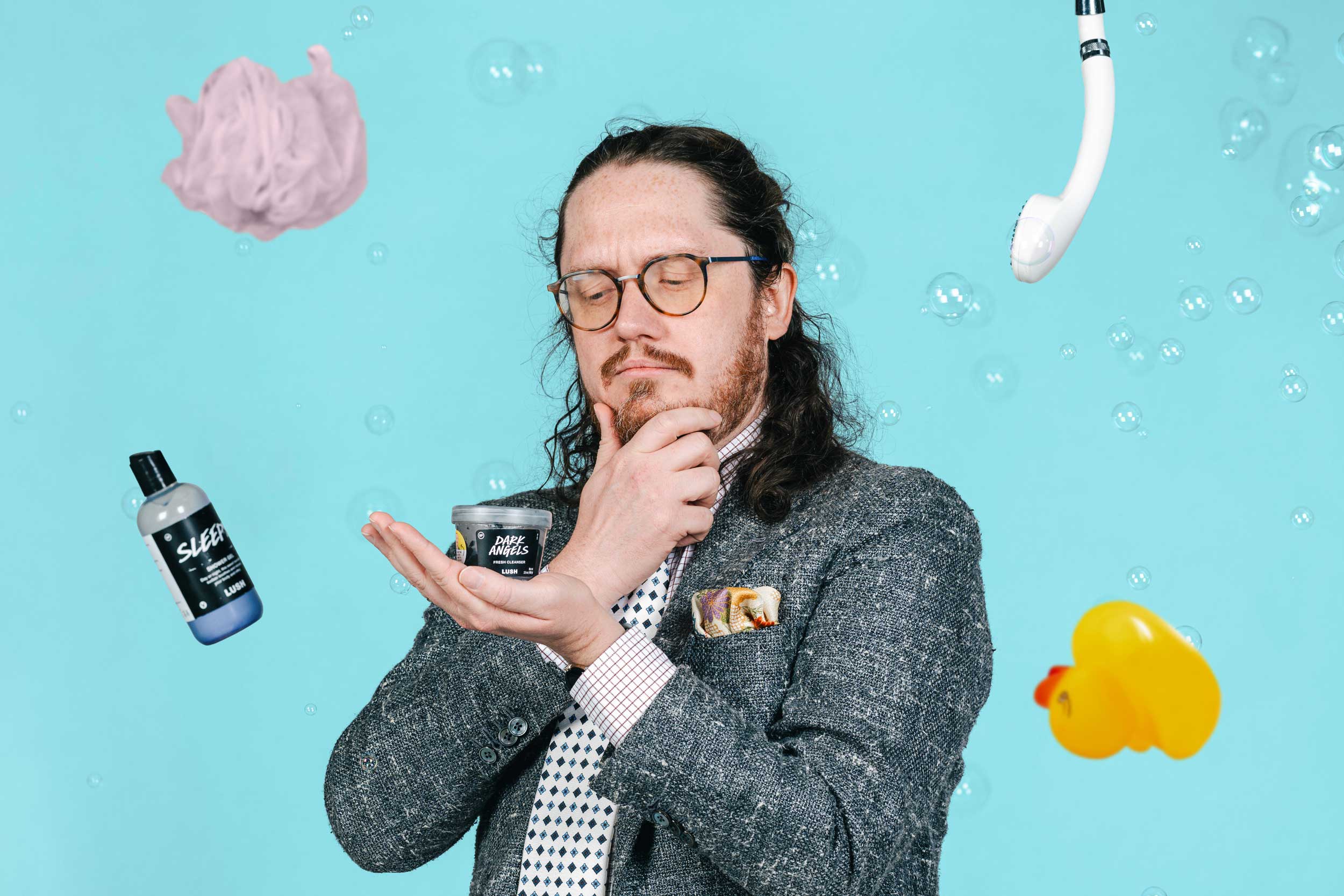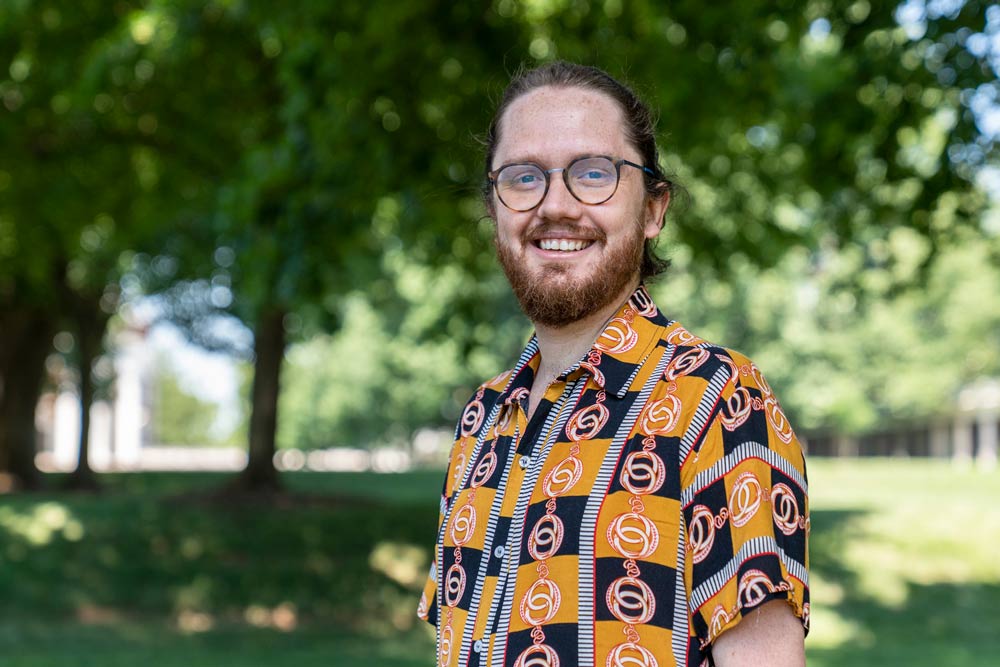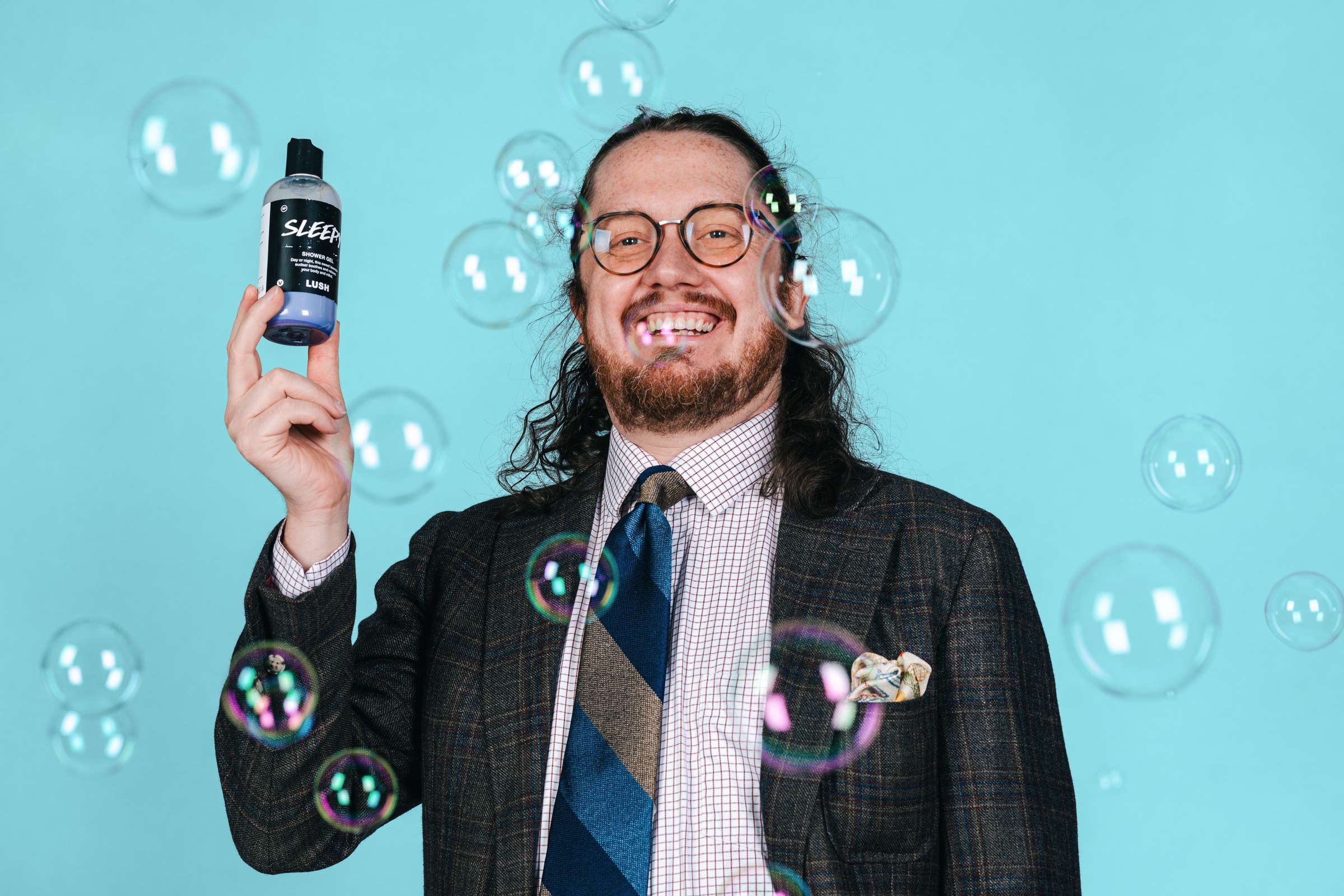“This is one of the most exciting partnerships we’ve done,” said Erica Vega, a brand and product manager with Lush. “Being able to integrate the colors, textures and essential oils of Lush products into a powerful mind-melting experience like this is such a fun new way to think about taking care of the body and the mind.”
In 2022, Irving, an assistant professor of philosophy and cognitive science, published a paper in the journal Psychology, Aesthetics, Creativity, and the Arts that talked about why moderately engaging activities like showering or walking tend to generate the kinds of ideas that we miss when we concentrate. Essentially, those kinds of activities are easy enough that your mind has room to wander but interesting enough to provide grist for the mill of creative thought.
“The issue with focusing in problem-solving is that you’re focusing on what you think is relevant about the problem and what you think is important, but sometimes you’re wrong,” Irving said. “When your mind is wandering almost randomly, that’s when you hit upon unusual or creative ideas that you otherwise would have ignored.”
When Irving first started studying the phenomenon, he found that definitions of “mind wandering” didn’t really capture the nature of the experience.
“What they were focused on was distraction in general,” Irving said. “They were defining ‘mind wandering’ as what are called ‘task-unrelated thoughts’ – in other words, anything that distracts you. Those seemed very different to me, both from a philosophical standpoint, but also from the point of view of how people think about mind wandering.”
And rather than thinking that there’s an unconscious process at work or one more actively engaged in problem-solving, Irving reasoned that mind wandering is a conscious state, just one that’s not focused, one in which free association happens naturally and without constraints.
After news stories highlighted the study, Lush, a British cosmetics and soap retailer, contacted Irving about the prospect of collaborating on a campaign called the “Power of the Shower.”
Irving helped develop a shower routine using Lush products specifically designed to induce mind wandering. The process involves creating a multisensory experience aimed at interrupting daily worries and obsessive thoughts and inducing both relaxation and a state of mind conducive to free association.
“The beauty product industry is focused on how to induce very specific emotions: how to make you experience relaxation or how to induce the sensation of wonder,” Irving said.
The partnership has also added a new dimension to Irving’s research. In the lab, it’s possible to induce emotional states that are simply good or simply bad in research subjects, but in order to explore the kind of specific emotional states necessary to induce mind wandering, Irving needs to induce more nuanced emotions. Lush’s product developers already have experience developing scents and sensations that do just that.












